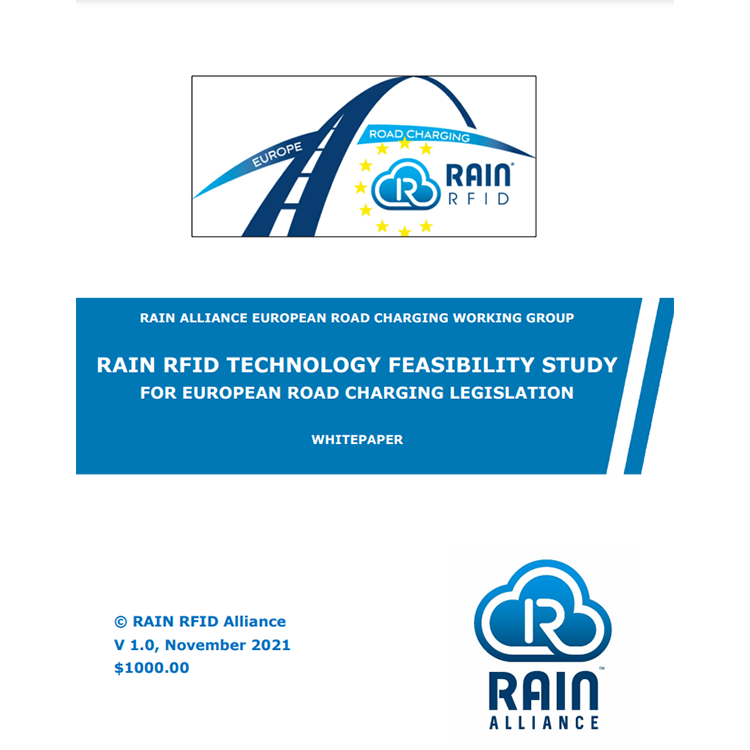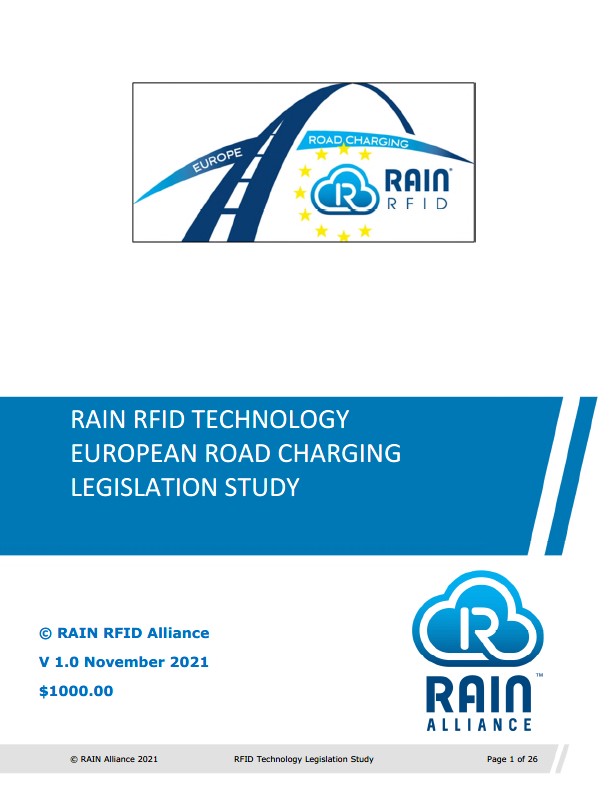European Road Charging Feasibility and Legislative Studies
European Road Charging Reports
$1,500.00
Description
This report includes two documents:
RAIN RFID Technology Feasibility Study
Sustainable road charging services within the European Union’s Road Network are in constantly evolving need of sustainable, ecological, and cost-effective smart technologies, being part of ITS – Intelligent Transportation Systems.
The major objective of the RAIN RFID Technology Feasibility Study is to serve as a basis for exchange of knowledge and best practice globally with public and private stakeholders involved in road (user) charging or Electronic Toll Collection, and to support the process of including RAIN RFID Technology in the future Directives, legislation, and services of the European Electronic Toll Service (EETS).
RAIN RFID has been emerging as a strong technology because of its low On-Board-Unit and transceiver/reader cost and has demonstrated its capabilities but is not considered in the European Legislation.
The Study is addressed to the involved stakeholders: European Parliament and its Transport Committee, the European Commission, Ministries and legislative bodies in EU member states, road users, concessionaires, operators, integrators, toll chargers, professional associations, the tolling and charging industry, standardization bodies, and financial institutions.
The major chapters of the Study are:
| Executive Summary | Best practices worldwide: Europe, Americas, Asia |
| EETS – The European Electronic Toll Service | Comparison of technologies (DSRC, ANPR, GNSS, RFID): financial impacts, consumer evaluation, SWOT, cost for three typical road schemes |
| Major Stakeholders | Former European Studies on Road Charging |
| RAIN RFID Technology components | The RAIN Alliance European Road Charging Working Group |
| Road Charging applications | Impact assessment of the Directive |
| Automated Vehicle Identification and License Plate Security applications | Summary and conclusions |
| Standardization | Contributors |
The latest revision of the European legislation on the European Electronic Toll Service took place in 2019 with the Directive 2019/520/EU. This Directive is at present being transposed into the EU Member States legislation to come into power by November 2021.
The impact assessment of the 2019/520/EU Directive is expected to be completed by April 2023. The way forward to consider RAIN RFID is to include “experimental technologies” in pilot projects. Pilot projects featuring other technologies can be authorized by EU authorities upon request by EU member states.
Therefore, pilot projects, studies, and best practice are to be produced in 2022 with the success metrics for RAIN to be considered in the 2019/520/EU Directive impact assessment and accepted in the next release of the Directive.
At present, also further developments within EU legislation are being considered, i.e., the completion of standardization for ANPR, Electronic Vehicle Identification (EVI), or the usage of smartphones. RAIN shall be added.
RAIN RFID Technology LEGAL Study ON THE EU ETC FRAMEWORK
The latest EU Directive on Electronic Toll Collection (ETC) interoperability in Europe, the 2019/520/EU, last month reached the deadline for the transposition in to the national laws; the most important, in terms of ETC, EU Member States complied with the deadline, some others are finalizing the procedure, but at any event since last 19th October the Directive is legally binding across Europe.
The main objective of the RAIN RFID Legal Study is to depict in practical terms the EU ETC legal framework, in order to detect the possibilities for its future integration with RAIN RFID solutions.
The legislative procedure in the EU can be complex, therefore the interested parties do need an effective tool to understand how their wealth of knowledge and solutions can be put at disposal of the decision makers involved in the process.
RAIN RFID has been emerging as a strong technology opportunity because of its low On-Board-Unit and transceiver/reader cost and has demonstrated its capabilities but is not at the moment considered in the European Legislation.
The Study complements the technology feasibility study that is being published in parallel, and is addressed to the market stakeholders, such as concessionaires, operators, integrators, toll chargers, professional associations, the tolling and charging industry, standardization bodies, and financial institutions.
The Study includes the following main components:
| EU legislation | General concepts, overview on the EU Institutions, description of the typical legislative procedure |
| EU ETC legislation history and rationale | General background (2004/52 Directive, 2009/750 Decision) and the resulting framework |
| Current EU ETC legislation: Directive 2019/520/EU | Directive content, obligations, clauses for its evolution; legislation implementation framework; European Electronic Tolling Service state of implementation, time range for the update of the Directive |
| Elements of a technical and advocacy strategy for RAIN to be included in the revision of the Directive 2019/520/EU | Stakeholders, actions |
The Study highlights that the impact assessment of the 2019/520/EU Directive is expected to be completed by April 2023. The way forward to consider RAIN RFID is to include “experimental technologies” in pilot projects. Pilot projects featuring other technologies can be authorized by EU authorities upon request by EU member states.
Therefore, pilot projects, studies, and best practice are to be produced in 2022 with the success metrics for RAIN to be considered in the 2019/520/EU Directive impact assessment and accepted in the next release of the Directive.
At present, also further developments within EU legislation are being considered, i.e., the completion of standardization for ANPR, Electronic Vehicle Identification (EVI), or the usage of smartphones. RAIN shall be added.



